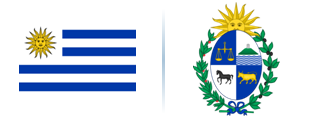Last Update: October 2021


| International Covenant on Economic, Social and Cultural Rights | International Convention on the Elimination of all Forms of Racism | Convention on the Rights of Persons with Disabilities | Convention on the Elimination of all Forms of Discrimination against Women | Convention on the Rights of the Child | International Convention on the Protection of the Rights of All Migrant Workers and Members of their Families | Constituent Agreement of the Development Fund for Indigenous Peoples in Latin America and the Caribbean |
| 1 April 1970 | 30 August 1968 | 11 February 2009 | 9 October 1981 | 20 November 1990 | 15 February 2001 | 17 February 1999 |
| View details | View details | View details | View details | View details | View details | View details |
Year of Latest Observed Constitution |
Social Housing |
Work and Social Security |
Public Health |
Public Education |
Social Development |
Children and Adolescents |
Youth/Young Adults |
Women |
Older Persons |
Persons with Disabilities |
Afrodecendants and Indigenous Peoples |
Migrants |
| 1997 | ||||||||||||
| View details | View details | View details | View details | View details | View details | View details | View details | View details | View details | View details | View details |
Children and Adolescents |
Youth/Young Adults |
Older Persons |
Women |
Peoples with Disabilites |
Afrodescendants and Indigenous Peoples |
Migrants |
Public Education |
Work and Social Security |
Social Housing |
Public Health |
Social Development |
|
| Legal Instrument | Codigo de Niñez y Adolescencia | Ley núm. 16170 | Ley de Promoción Integral de los Adultos Mayres | Ley para la Promoción de la Igualdad de Derechos entre hombres y mujeres | Ley de Protección Integral de Personas con Discapacidad | Ley 17.817 de 2004 - Lucha Contra el Racismo, La Xenofobia y La Discriminación | Ley Nº 18250, "Ley de Migraciones" (2008) | Ley General de Educación | Ley de Seguridad Social | Ley de Acceso a la Vivienda de Interés Social | Ley Orgánica de Salud | n.d. |
| Law | Law | Law | Law | Law | Law | Law | Law | Law | Law | Law |
| Country | Uruguay |
| Main authority | Social Cabinet |
| Year of creation | 2005 |
| Coordinating authority | Minister of Social Development |
| Members | Ministry of Social Development; Ministry of Economy and Finance; Ministry of Education and Culture; Ministry of Labor and Social Security; Ministry of Public Health; Ministry of Tourism and Sports; Ministry of Housing, Spatial Planning and Environment; Office of Planning and Budget, and Congress of Intendants. |
| Country | Uruguay |
| Main authority | Ministry of Social Development |
| Year of creation | 2005 |
| Mission | To formulate, execute, supervise, coordinate, program, monitor and evaluate the policies, strategies and policies regarding women, young people, families, the elderly, people with disabilities and social development in general. The Ministry of Social Development, is responsible for nation wide social policies, as well as coordination - in both sectoral and territorial level -, articulation, monitoring, monitoring and evaluation of plans, programs and projects, in the areas of its competence, regarding the consolidation of a progressive redistributive social policy. Likewise, it is the mission of this ministry to contribute to the development of social participation that allows the strengthening of the active citizenship of the Uruguayans, promoting the broadest integration of the citizens in their activities. |
| Incumbent | Martín Lema (2021) |
| Population segment | Children and Adolescents |
Youth/Young Adults |
Older Persons |
Persons with Disabilities |
Women |
Migrants |
| Main protection mechanism | Instituto del Niño y Adolescente del Uruguay (INAU) | Instituto Nacional de la Juventud | Instituto Nacional de las Personas Mayores | Comisión Nacional Honoraria del Discapacitado (CNHD) | Instituto Nacional de las Mujeres | Dirección Nacional de Migraciones |
| Legal Instrument | Ley N 17823 Código de Niñez y Adolescencia (2004) Decreto Reglamentario 475/2006 | Ley núm. 16170 Convención Iberoamericana de Derechos de los Jóvenes (Ley núm. 18270) | Ley Nº 17.796 Promoción Integral de los Adultos Mayores | Ley 18.651 de protección Integral de personas con discapacidad | Ley Nº 18250, "Ley de Migraciones" (2008) |
|
Technical-operational dimension | |||||||
| Unique Registry of Participants | Sistema Integrado de Administración Financiera /b | Sectoral Plan for Social Development | Transparence - system for accessing public information from the State | Integrated Social Information System |
Evaluation mechanisms for social programs |
|||
General |
Sectorial |
General |
Sectorial |
|||||
| Ministry of Social Development | ||||||||